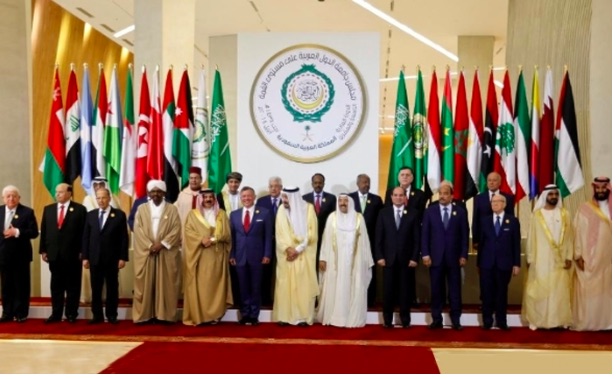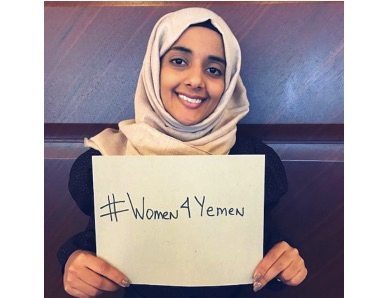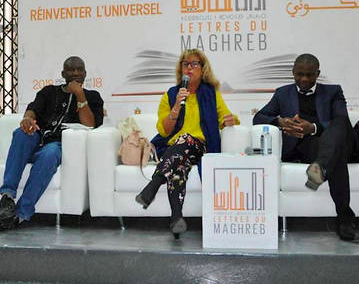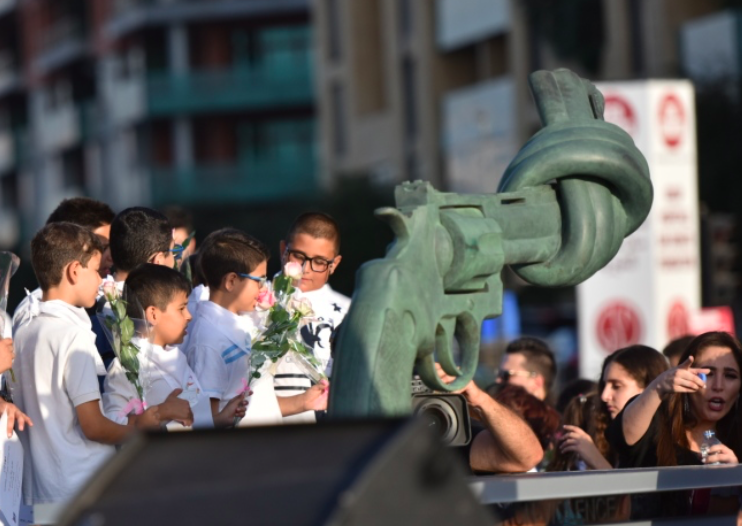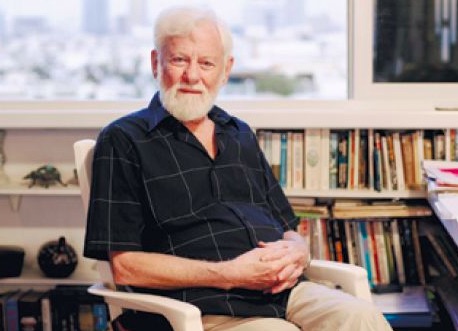FREE FLOW OF INFORMATION
A survey by CPNN
The following 30 events in 15 Arab and Middle Eastern countries were listed in Google during the week of September 21-28 under the key words “International day of peace” “journee internationale de la paix” and اليوم الدولي للسلام. This also includes a few events listed on the websites of International Cities of Peace, the event map of the international day of peace, as well as partipants in One Day One Choir and Montessori schools singing for peace.
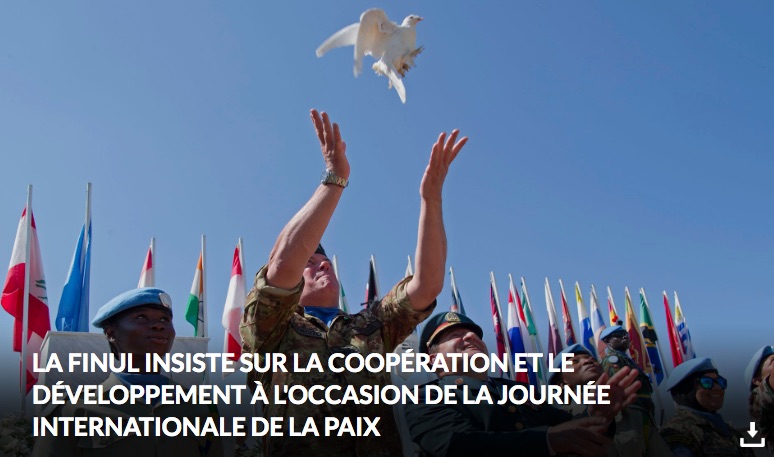
Photo from ceremony of the UN Fprce in Lebanon (FINUL).
Here are excerpts from the articles.
CAIRO, EGYPT: The 11th International Festival of Songs and Spiritual Music was held in Egypt on the occasion of the International Day of Peace. The festival is attended by teams from 16 Arab and foreign countries as well as the Egyptian and Syrian teams currently residing in Cairo. Participating countries include India, Greece, China, Sri Lanka, Jordan, Algeria, Sudan and Pakistan, while Congo will be the guest of honor. The shows will be held in archaeological and tourist sites such as the Dome of the Ghuri, Al Moez Street and the Religions Complex, as well as the Hanager Square in Opera, the Roxy Square and the Behar Pass in the city center. “Today we are opening the eleventh session of the Sama Festival for Chanting and Spiritual Music,” Egyptian Culture Minister Inas Abdel Dayem said at the opening ceremony on Saturday at the Beer Youssef Theater in Salahuddin Citadel. “We meet with the music and cultures of many countries in the world that are keen to participate in the festival Public”.
HELIOPOLIS, EGYPT: On the occasion of International Human Rights Day, the Heliopolis Public Library in Heliopolis is holding a Fine Art Exhibition under the title “International Day of Peace”, with the participation of artist Ahmed Pero and artist Christine Safwat at 12 noon on Saturday.
LUXOR, EGYPT: The “Peaceful Coexistence” initiative in the province of Luxor organized a celebration on the occasion of the International Day of Peace, yesterday evening. “The World Day of Peace provides all the peoples of the world with a common opportunity to organize events and carry out works that glorify the importance of peace and democracy in realistic and useful ways for this celebration of World Peace Day,” said Sameh Thabit, founder of the initiative. The celebration began with the organization of sports games for both boys and girls, urging them to cooperate, love and work together. Sameh stressed that the initiative is working to introduce the concept of sport and its relationship to development.
TEL AVIV-YAFO, ISRAEL: Peace day was celebrated with speakers from the different parts of Israel who daily fight for peace.
JERUSALEM, ISRAEL: A short March, prayer for peace and ceremony was held in the Atsma’ut Garden.
NAQOURA, LEBANON: On the International Day of Peace, the United Nations Interim Force in Lebanon (UNIFIL) held a ceremony at its headquarters in Naqoura and a photo exhibition in Beirut and a letter from the head of the mission that all sides cooperation is necessary to achieve peace and stability in sustainable South Lebanon . At a ceremony for the occasion, the President of the UNIFIL mission and its leader , General Major General Stefano del Cole , stressed that “efforts must be directed towards a cease – fire a lasting and sustainable peace.” He also affirmed UNIFIL’s strong commitment to helping the parties maintain a peaceful environment in southern Lebanon, stressing three key words: “Peace, Partnership and Understanding”.
BEYROUTH, LEBANON: The association “The Third Voice for Lebanon” (3V) organized at the Lycée Montaigne an exposition of Guernica, the masterpiece of Picasso. The exhibition opened last Friday on the occasion of the International Day of Peace (21 September). The event lasted from 21 to 23 September and was under the patronage of Ziad Chbib, Beirut’s mohafez, and was held on the first day in the presence of Mr. Chbib and Imane el-Assi, representing Fadi Yarak, Director General of the Ministry of Education, Jihad Feghali, President of 3V, as well as the vice-president of the association, Aimée Karam. “Our goal is to strengthen the building of peace in Lebanon through education in schools, the family and the social environment at the level of the individual and groups. This type of intervention in schools encourages personal development, the consolidation of values, information, skills and attitudes through the exercise of peace (…), which should mark what should be a true citizenship, “said Ms. Karam.
AL JANUB, LEBANON: On the occasion of the International Day of Peace, Al-Haj Bahaa Al-Hariri School has organized a series of activities entitled “The Right to Peace – 70 years since the adoption of the Universal Declaration of Human Rights”. On the occasion, schoolchildren formed the word “peace” with their bodies surrounded by olive branches, emphasizing the right of peoples to live in peace. The activities were directed to the students of the kindergarten classes until the ninth grade under the supervision of teacher Ramia al-Sousi. The teachers from the school gave an explanation of this international day, which was dedicated by the General Assembly of the United Nations to promote the ideals of peace in and among nations and peoples. The activities also included songs inspired by the occasion, drawing and coloring the slogan of peace, as well as writing texts on the importance of renouncing violence and wars and bringing peace, freedom and democracy within society.
LIBYA: Libya’s Future Movement launched an international campaign for peace in Libya on Friday, the International Day of Peace. This is in cooperation with the Tunisian Project Movement and CEMAJUR International, at the headquarters of the Institute for Public Policy of the Tunis Project Movement in Tunis.
GAZA CITY, PALESTINE: Palestinian students of Fine Arts celebrated on October 13, the World Day of Peace, making murals in the city of Gaza.
MOGADISHU, SOMALIA: The Peace Action Society Organization PASOS held an event in Mogadishu for the International Day of Peace. It was attended by more than 160 people, among them peace activists and civil society groups, government representatives, international NGOs and youth organizations. The meeting discussed the security situation and how peace is needed, that everybody has the right to access to water and a better life.
NORTH DARFUR, SUDAN: The Deputy Governor of North Darfur, Minister of Agriculture, Livestock and Irrigation Mohammad Barima, addressed the celebration organized by the Ministry of Culture and Information in the State in cooperation with the Joint African Union-United Nations Mission (UNAMID) on the occasion of the International Day of Peace. He affirmed the commitment of the state government to consolidate peace, security and stability in the province and preserve its gains, pointing out that the president’s decision to collect weapons. For his part, the Minister of Culture and Information in the state of Hada Barma Saleh said that his ministry will continue to support and support programs and projects that work to spread a culture of peace. The United Nations has traditionally celebrated the International Day of Peace in order to achieve the lofty human goals and objectives and to commemorate the United Nations Charter on Human Rights, said UN peacekeeping chief Luke Olama. He stressed that human rights in Darfur have improved significantly, prompting the United Nations to take its decision to withdraw UNAMID from the state and final and towards the programs of development and reconstruction.
(Survey continued in right column)
Question for this article
What has happened this year (2018) for the International Day of Peace?
(Survey continued from left column)
ALEPPO, SYRIA: On the occasion of the International Day of Peace, the International Youth Chamber organized in cooperation with the Syrian Secretariat for Development, the event in Aleppo entitled “The Cloe Sager Olive”, which included a volunteer youth march from the Holy Land Monastery to the Garden of the pine and planting it with 400 olive trees and naming them with a number of expatriates. “On the occasion of the International Day of Peace and the recovery and reconstruction of Aleppo, this event came to spread a message of peace to the expatriate outside Syria,” said Rami Kamal, president of the International Youth Chamber. The event was attended by 60 associations and grassroots organizations, about 1,000 young men and women from the International Youth Chamber, the Syrian Secretariat for Development, local associations and organizations, chambers of tourism, industry and trade, and the church scout teams in Aleppo.
HOMS, SYRIA: The International Chamber of Youth in Homs held this evening the event of “Kloe Sager Olive … for Syria Peace” on the occasion of the International Day of Peace, which included the planting of more than sixty different olive and citrus trees in the garden opposite the Islamic neighborhood in Al-Wa’r neighborhood. Dr. Alaa Birekdar, President of the Chamber said in a statement to SANA correspondent that the activities of the day are held in cooperation with the city council of Homs and the Islamic community in order to convey a message to the whole world that Syria is a country of good and peace and that with our cooperation we can change and rebuild.
SAHNAYA, SYRIA: The “Bidaya” Center for Development Activities in Sahnaya established “Our Heritage Our Identity” initiative on the occasion of World Peace Day, under the slogan “We must each plant a grain in the land of peace.” The initiative presented various paintings, reflecting the different cultures and environments that live in Syria, such as the Shami and Halabiya environments, Zafat and Zogarid from Suwayda, in addition to Deir al-Zour and Homs. The Syrian coast also has a share, along with Arab cultures living in Syria such as Palestine and Iraq. “It is one of the commandments of Christ to love each other, and love is only in peace,” said the priest of St. Elias’s Church of St. Elias.
QAMISHLI, SYRIA: Several civil society organizations in Qamishli, in the northern countryside of Al-Hasakah, organized a festival on the occasion of the International Day of Peace, aimed at promoting coexistence among the components of the region. The Rosanna correspondent in al-Qamishli Hassan Hussein said that the festival, entitled “We Love Mahamshili” was organized by Doz with the participation of many civil society organizations last Friday, September 21, World Day of World Peace. “This initiative started in 2017 and this year we have been working in the form of teams and each group has a particular theme, water security and sport against extremism, art and culture,” said festival coordinator Hanaa Ahmed. She added that “the goal of the festival peaceful coexistence among the components of the region and peace in Qamishli city of love and peace.” Participating in the festival were the Char Development Organization, the SMART Center for Psychological Support, the Arab National Authority, the Human Rights Organization, the Common Ground and the Union of Kurdish Writers. The city of Qamishli, where Arabs, Kurds, Assyrians and Syrians live, is in a state of tension between the army of the Syrian regime and the forces of “self-management” Kurdish, with sporadic clashes between the parties from time to time.
SYRIA: On the occasion of the International Day of Peace, Damascus and several Syrian cities witnessed a 12-hour marathon, in which about 15,000 people from different age groups took part. The marathon began at 8 am in Aleppo, Homs, Hama, Lattakia, Tartous and Sweida, where the participants ran simultaneously for a distance of 3 kilometers, before a number of them went to participate in another evening marathon in Damascus, concluded by a ceremony held by the Umayyad Square in the Syrian capital [with CNN video of event].
TUNIS, TUNISIA: The International Day of Peace was celebrated at the Faculty of Juridical, Political and Social Sciences on September 21. The meeting was addressed by the head of the faculty, Mme. Neila Chaabane, the representative of the Club of International Humanitarian Rights, Mme. Takwa Tayari, and the representative of the UN Information Center, Mr Jihed Gannem. A film was shown in memory of Kofi Annan, former Secretary-General of the United Nations.
UNITED ARAB EMIRATES: The “Sawab” Center launched a new campaign on its social networking platform yesterday by marking #AfterTerrorism in Arabic, English and French on the “Sawab” platforms in Twitter, Facebook, Instagram and YouTube in conjunction with the activities of the International Day of Peace. The new campaign will shed light on the stories of victims and survivors of extreme violent terrorist attacks around the world, such as those in France, Burma, Norway and elsewhere, said the center, the joint US-US Digital Initiative platform to combat violent extremist ideologies across the Internet and promote positive alternatives. In celebration of the International Day of Peace, the Center will also include the voice of strong figures such as: Pakistan’s Malala Yusufi, South African President Nelson Mandela, and the late Pope John Paul II who survived violent extremism and later became symbols, supporters and heroes of the industry. Hope, and spreading the message of forgiveness, love and tolerance, and peace, reconciliation and peaceful coexistence.
ADEN, YEMEN: On 25 September 2018, the Commission for Development and Rights in Aden organized a celebration on the occasion of World Day of Peace in partnership with the Development Symbols Foundation for the Deaf and the Yemeni Organization for Permanent Peace. The celebration included a number of events and events with the participation of 25 media and media and 30 deaf children. The committee provided psychosocial support to Deaf children and launched a friendly space for them at the Symbols Foundation for the Deaf and worked as a special workshop and drawing them towards peace. To get them out of the cycle of violence they are living. Fayrouz Wahban presented a briefing to the participating media about psychological support and its importance to societies that have experienced wars and violence. The media coordinator also called on all media and media outlets to shoulder their responsibilities to protect the social fabric that has been torn apart by wars and violence in society. The aim of this event is to spread a culture of social peace and to encourage people and society to preserve it and guide them towards peace, development and construction rather than demolition.
In addition to the above events, One Day One Choir lists participating choirs for the International Day of Peace in :
Egypt (ALEXANDRIA, CAIRO)
Ethiopia (ADDIS ABABA)
Israel (TEL-AVIV)
Jordan (AMMAN)
Lebanon (BEIRUT)
Morocco (CASABLANCA)
Tunisia (TUNIS)
And the map of Montessori schools singing for peace on the International Day of Peace includes schools in:
Bahrain (MUHARRAQ)O
Morocco (CASABLANCA)
